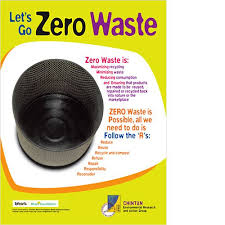The global e-waste monitor 2024
<p>The world's electronic waste generation is increasing five times faster than documented e-waste recycling, according to the United Nation's fourth Global E-waste Monitor (GEM) report.</p>
<p>The world's electronic waste generation is increasing five times faster than documented e-waste recycling, according to the United Nation's fourth Global E-waste Monitor (GEM) report.</p>
The government is planning to study the consumption pattern of electronic equipment in the country in order to decide targets for their manufacturers on the minimum volume of e-waste — discarded electronic
NEW DELHI, 10 JUNE: Barely 4.5 per cent of India’s e-waste gets recycled due to absence of proper infrastructure, legislation and framework for disposing off electronic gadgets and products that have reached
The Boomika project is part of the Suchitwa Varsham 2011-12 programme. Along with the campaign ‘My City My Pride,' it aims to rope in students to make Kochi a cleaner and greener place. In Bhoomika, students collect plastic from their homes and drop them in waste bins placed at schools. This will be taken away by Kochi Corporation workers, and later recycled.
Less than five per cent of India's total electronic waste (e-waste) gets recycled due to absence of proper infrastructure, legislation and framework, industry body Assocham said today. In its analysis on the World Environment Day, it said that India, growing at a compounded annual growth rate of about 20 per cent, annually generates over 4.4 lakh tonnes of e-waste.
Most of us often face a situation where the cellphone we use becomes obsolete thanks to a newer technology emerging. When we give in to this, how many of us really worry about what happens to the older gadget? More often than not, such electronic waste is thrown into dustbins. This problem of e-waste generation and its subsequent disposal is now seen as a global occurrence. The United Nations Environment Programme states that 50 million metric tonnes of e-waste are generated worldwide every year.
The Environment Protection Department (EPD) has devised a legislative framework for Punjab and simplified the procedure for the initial environmental examination. Environment Secretary Saeed Iqbal Wahla
The e-waste rules, which require manufacturers of electronic wares to introduce mechanisms for collecting and recycling their goods, came into force on May 1—a year after those were notified. The one-year

This set of zero waste case studies profiles nine diverse communities, each providing a real-world example of authentic progress toward the goal of zero waste.
The UK is in danger of building too many waste treatment plants and could reach over-capacity by 2015, new research warns. A study from Eunomia Research & Consulting claims that if all of the facilities
The UK consumes an astonishing 165 million cups of tea every day, but most of the teabags that go to making the nation's favourite hot drink still end up unnecessarily in landfill. Now manufacturing